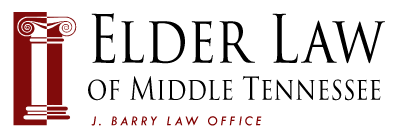What is Probate?
Probate is the legal settlement of someone’s money and property, known as their estate, after they have passed away. The court will begin the process by validating the will if there is one. Then the court will divide your estate to your creditors, heirs, and beneficiaries.
However, not everyone’s estate will need to go to probate. Probate is for property that does not have a designated beneficiary, is solely owned by the deceased, or does not have title.
Assets that Do Not Require Probate
-
Examples of assets that do not require probate include:
- Life insurance policies with named beneficiaries
- Payable on Death (POD) or Transfer of Death (TOD) terms on bank accounts
- Assets in a Trust
- Property with “Right of Survivorship”
Having a Will is Not Enough
Having a Will does not mean that you can avoid probate. The court must first determine that it is in fact a validly executed Will. Then they will give authority to the designated executor or choose an executor. That kickstarts the Will. Depending on where in Tennessee you live, that could be a few months before that date is set. Then creditors must be notified or have time to start their process of collections. The process can be long, expensive, and public.
The benefits of having a Will do outweigh not having one. A Will helps ease the process for your family and friends. With those documents, your wishes are clear for the court. If you do not have a validly executed Will, the court must make the decisions about how your estate will be divided and disbursed.
A Trust Can Help Avoid Probate
To avoid the inconvenience, expense, and publicity of probate, you can establish a Trust. With a Trust your last wishes and legacy are documented and can be executed. A Trust is simply a legal tool to store your assets and provide instructions for your Trustee to carry out your preferences. The Trust can be revocable or irrevocable. With a Revocable Trust, the Trust-maker keeps control of the assets. With an Irrevocable Trust, the Trust-maker has indirect access to the assets, but the assets can be protected from creditors, scammers, and even a Trust-maker who is losing the ability to manage their finances.
We Can Help
We can walk you through the process of establishing a Trust, or Will, that is right for you and your family. We are here to help guide you as you make decisions regarding your estate and long term care planning needs. Whatever issue is preventing you from developing a more extensive estate plan, please allow Elder Law of Middle Tennessee to assist you in this process.
For more information, contact our Lebanon, TN office at 615-444-3568 and schedule your appointment today.

